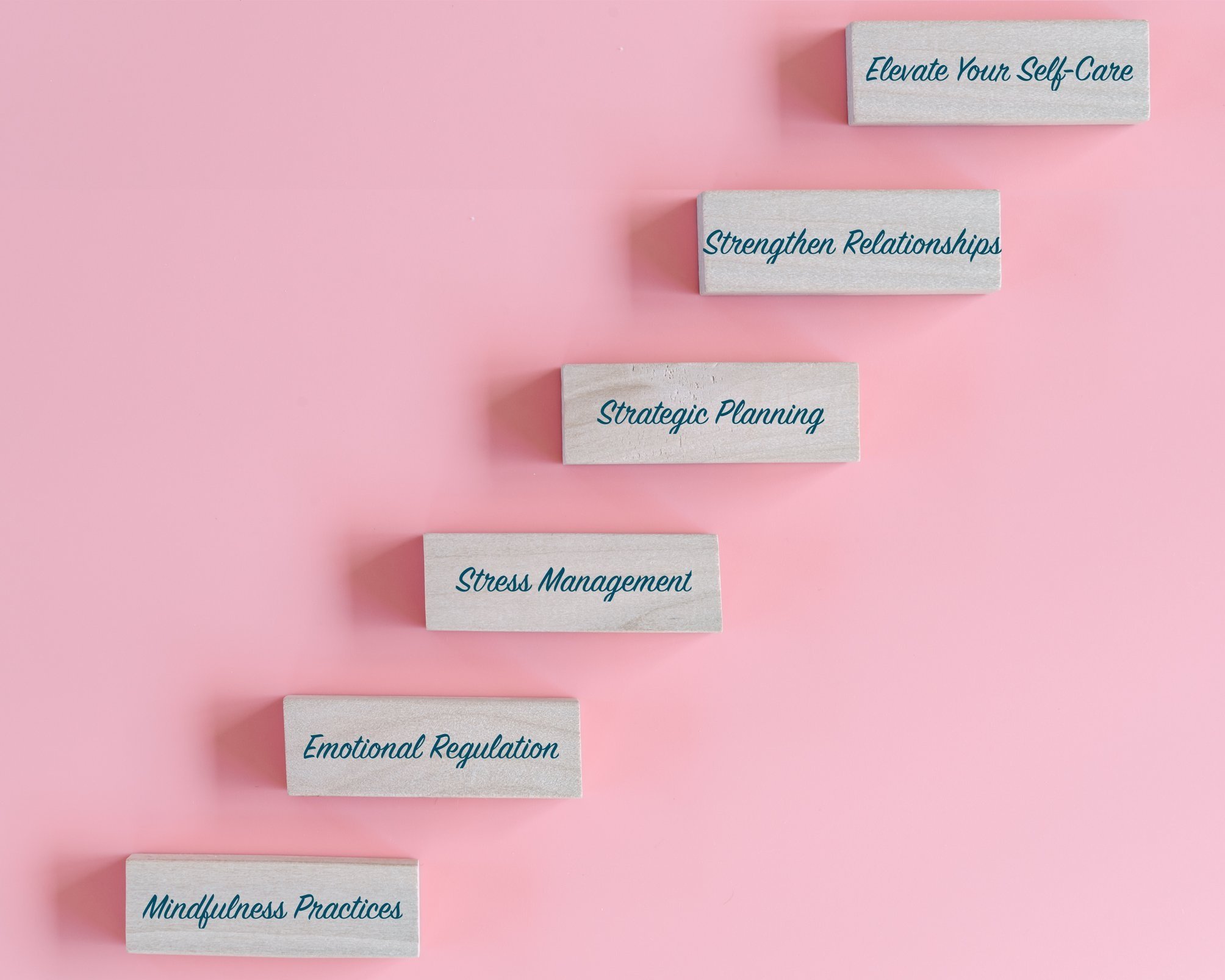Empowering Your Recovery: 6 Key Steps to Strengthening Your Journey
Often substance abuse problems develop out of a person’s ineffective attempt to cope with any particular aspect of their life. A person may become overwhelmed with events in life such as loss of a job, a failing marriage, physical health concerns, an increase in stress, anxiety, depression and emotional instability or any number of mental health disorders. They may find themselves starting to self-medicate with alcohol or drugs, and soon, this coping mechanism can accelerate and become a compulsion, turning it into a full-blown addiction.
Positive coping mechanisms need to be adopted in order to overcome the addiction. Each person is unique in what helps them, but here are 6 vital coping skills that many find helpful in any recovery journey.
1. Mindfulness Practices
Mindfulness has recently gained popularity as a key tool in addiction treatment and recovery. Often those struggling with addiction get stuck in the past or in the future which removes them from the power and peace that is in the present moment. Mindfulness is the practice of attending to the present moment without judgment. When you are rooted in the present moment, you have more peace and are better able to handle things as they come. You are not beating yourself up about the past or creating unhealthy expectations of the future.
You can practice mindfulness at any time by just allowing yourself to be absorbed in whatever you are doing in the present moment. This is as simple as paying attention to whatever you are experiencing in the present moment. These activities accompany a number of different practices, such as breathing (or breath-work), meditation, and yoga. Another way of practicing mindfulness is to pay particular attention to your senses, or when you hear the voice of self-judgment creeping in, counter it with a statement of self-kindness whether you fully believe it yet or not.
2. Emotional Regulation Skills
When we are emotionally reactive we can feel like we are at the mercy of our environment. However, you can learn how to control your emotional reactions. Mindfulness is a key part of emotional regulation. We cannot stop our emotional reactions but we can observe them. This helps to moderate and control them so they have less power over you.
Practice observing your emotions, your thoughts, and reactions. Try to slow down the process of reactivity. You can do this by writing down your emotions or just noticing when something starts to trigger you. Become curious about yourself and why things influence you in a certain way.
3. Stress Management Techniques
As mentioned earlier, often a precursor to the development of an addiction is the stress in one’s life. Therefore, it is critical to integrate stress management techniques into your life. It is important to develop self-awareness that will help you to identify when you are feeling stressed so you can take appropriate action to reduce your stress.
What are the signs you are getting stressed? What skills and techniques do you have to reduce your stress? Go for a walk. Use mindful breathing exercises, step away from the problem, communicate your needs to a trusted partner. Find the techniques that work for you.
4. Strategic Planning
It’s important that you develop the self-awareness and self-reflective skills to identify and understand what may be stressful and triggering for you and potentially contribute to a possible relapse. Who might you run into? Where might you be going? What things might you come across? Spend time in advance thinking of scenarios that may be stressful for you and how you are going to deal with them in a way that keeps you safe. This may be good to do with your counselor and to share your brainstormed strategies with your support network.
5. Establishing and Strengthening Relationships
This almost goes without saying, but it somehow becomes one of the most practical needs that ends up being overlooked. Having a support network is key to your healing and recovery journey. Having people you can trust and rely on will help you feel connected and not alone. It is important to not isolate yourself but instead embrace your vulnerability and connect to trusted others. Join recovery groups, and lean on the support of family and friends. Remember that those in your life are rooting for you to succeed, and that you are stronger when you allow others to help you.
6. Elevate Your Self-Care Routine
These days we hear a lot about the importance of self care in terms of meditation, exercise, and healthy eating. However, self care extends beyond just health and wellness practices. Make sure you take the time to identify the things you enjoy or have enjoyed in the past. From there you can begin practicing ways of implementing them into your life with more regularity. Ask yourself: What activities give me a sense of joy or happiness? When we engage in these activities, we get flooded with feel-good hormones that boost our mood and ability to not just survive but to flourish and thrive.


